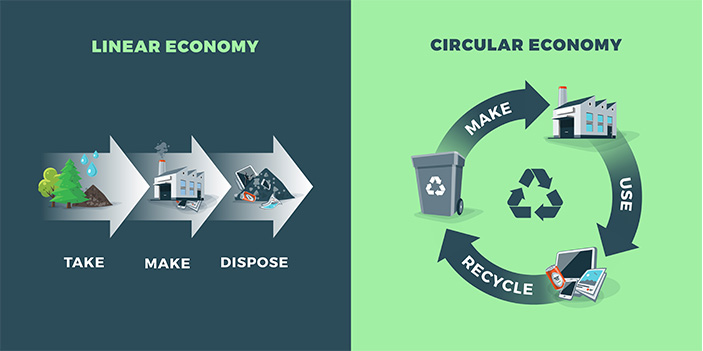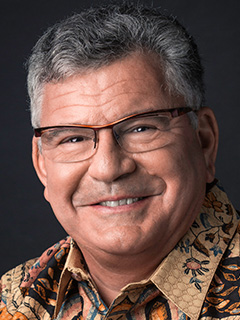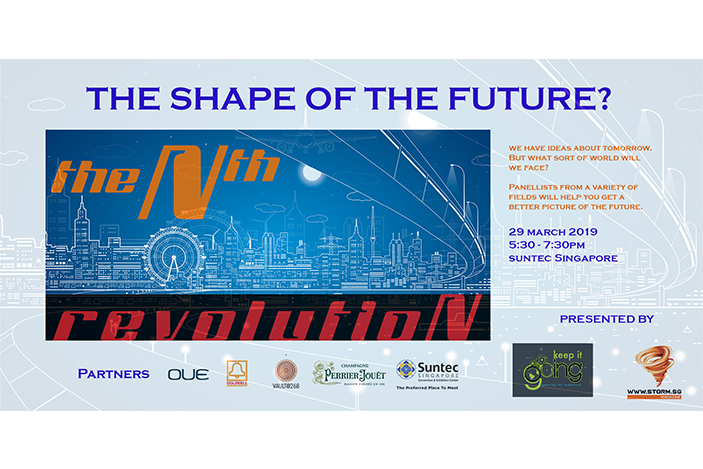OUR use and abuse of Earth’s energy and resources has forced the planet and the population to evaluate how we function.
Change is necessary if we are not to overtax Earth’s resources and leave future generations in the lurch. The planet is reacting to the changes in ways that could choke our very existence.
Peter Godfrey, APAC Managing Director of the Energy Institute talks about the importance of managing energy for the future of the planet. He will be a panellist in the upcoming Keep It Going: the Nth revolutioN discussion — The Shape Of The Future?
STORM: What do you consider as the 3 key energy milestones?
Peter Godfrey: The first milestone is understanding what energy means within the context of the environment, with new environmental pressures put on us.
Importantly, it is to understand it in the context of sustainability. We are using too many resources on our Earth too quickly.
The second milestone are the “5 Ps” within the UN Sustainable Development Goals.
- People — all about ending poverty and hunger.
- Planet — protecting the planet from degradation.
- Prosperity — ensuring all human beings enjoy a fulfilling life.
- Peace — fostering a peaceful, just and inclusive society.
- Partnership — developing collaboration in a sustainable development world.
The third milestone is to understand that it’s not just oil and gas, and renewables. In a circular world it’s about how we use our resources.
How we manage our resources in a more interlinked way. The future will be about how energy, water and waste are managed in a universal way.

In a circular economy we recognise that the way we are using our resources today can be improved. From design to the end of life of a project we need to be more focused on designing in circularity.
We have to use fewer resources, use them well, reuse them, and minimise waste.
We have to change from the make and dispose of the Industrial Revolution factory world, to one that rewards products on resource optimisation rather than consumption.
STORM: What is the significance of the current situation we are in?
PETER: It is extremely significant, but has to be realistic. Changes cannot happen overnight. We need to define the road we are on.
Over the years, we have developed massive companies and supply chains. We cannot change those overnight. It is important to understand how regulators change and shift values.
It took us 110 years to get to where we are today. With new technologies, it would be quicker to advance.
STORM: Is there a changing mindset towards how we consume energy?
PETER: It is gradually changing. But we are still over consuming.
A vast proportion will agree on that, but whether they are willing to do anything is another story.
Their hearts are in the right place, but money talks, after all.

But it’s good that the conversation is open, alive and kicking. Governments and regulators recognise the need to change.
In the energy world there are grey areas. Indonesia is still happy to dig coal out of the ground since it’s the cheapest resource.
I would argue it isn’t.
They recognise the issues, but they have a society to run.
It’s a question of how quickly they will react. It’s about policy and politics. They all need to get elected.
It suffers from short-termism.
We cannot live without energy. It is a sector that is alive, kicking and well. With the “5 Ps” evolving, we will need a lot more energy as people come out of poverty and their economies prosper.
The question is how do we get that energy.
Peter Godfrey is a panellist at the upcoming Keep It Going: the Nth revolutioN discussion — The Shape Of The Future? The event takes place on 29 March 2019, from 5:30 to 7:30pm.
Keep It Going is a series of discussions on topical issues developed by STORM magazine. If you would like to attend, email kig@storm.sg
























